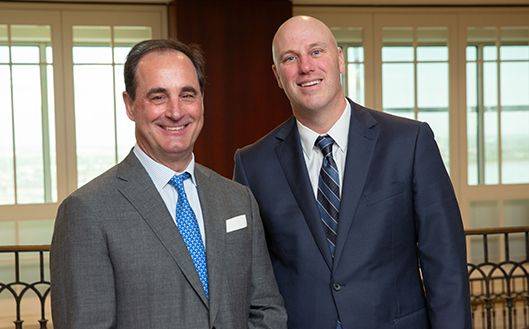Recent Rulings Could Signal Greater Protection for Tenants With Bankruptcy Issues Due to COVID-19
Bankruptcy presents challenges for both landlords and tenants. However, tenants are often better protected during a bankruptcy case. And as some of the first big bankruptcy cases in the COVID-19 era show, protections for tenants could be expanding.
Tenants in bankruptcy have the following shields from lease obligations:
Forgiveness from termination provisions
Termination provisions in a lease cannot be enforced once tenants file for bankruptcy.
Freedom to assume and assign the lease
To assume the lease, tenants must pay rent owed when the bankruptcy case began. Tenants can also assign the lease to a third party without landlord consent. There are some exceptions:
- If the lease expired prior to the case, it is not property of the estate. The landlord can decide what to do with it under state law.
- If an applicable law bars the assignment of a lease without landlord consent, the assignment can be stopped.
- There are protections to maintain the tenant mix in shopping centers and to make sure provisions of the original lease are assumed by the assignee. These protections also help landlords—the assignee must pay the same amount of rent and have financial conditions and operating performance as strong as the tenant’s.
Ability to reject burdensome leases
Tenants can reject burdensome leases and surrender the premises, leaving landlords with a limited unsecured claim. In this case, a landlord’s claim is split into two separate rights to payment.
One is an administrative expense claim for the time a tenant was in the premises after filing bankruptcy. Landlords have a good chance of recovering this portion, since administrative expenses are the first claims paid in bankruptcy cases.
The other is lease rejection damages. This includes unpaid rent and any liquidated damages under the lease. The bankruptcy code limits rejection damages to the greater of:
- One year of rent reserved under the lease
- 15% of the remaining lease term, limited to a three-year period
Note that other amounts can be included that do not qualify as rent.
In addition to these protections, time is on the tenants’ side. Tenants get four months to assume or reject contracts. The court can add three months to that time.
While landlords are waiting to see if tenants will continue the lease, they may not be getting paid. The bankruptcy code says tenants must keep paying rent, but lately, some courts have disagreed.
As COVID-19 shutdowns hit, tenants in bankruptcy, including Pier 1 Imports and Modell’s Sporting Goods, claimed there was no market for their sale or liquidation and asked courts for more time. Courts agreed, but landlords filed motions to compel continued rent payments. In Pier 1’s case, the court ruled against the landlords, reasoning that they are entitled to rent payments, but not in advance. This ruling was a blow to landlords, who argue they are funding the case by not receiving rent while the case is stalled.
One bankruptcy court in Chicago went so far as to forgive most of a restaurant tenant’s rent. Illinois’ governor limited restaurants to curbside pickup and delivery due to COVID-19. The tenant argued this triggered its lease’s force majeure clause, which excused it from obligations to the landlord. The court sided with the tenant. The tenant estimated 75% of its square footage was unusable during the shutdown, so the court reasoned it should pay 25% of post-petition rent owed.
A landlord’s ideal situation when tenants file for bankruptcy is that they immediately resume rent payment and assume the lease by paying outstanding rent. But tenants have a lot of leverage in bankruptcy, and now that courts recognize the extraordinary circumstances they face due to COVID-19, they may be even better protected moving forward.
Phelps’ experienced team of bankruptcy and business advisors are monitoring the current situation and will continue to provide useful updates. As always, we are available to provide guidance and advice as these issues evolve. For more information related to COVID-19, visit Phelps’ COVID-19: Client Resource Portal.



